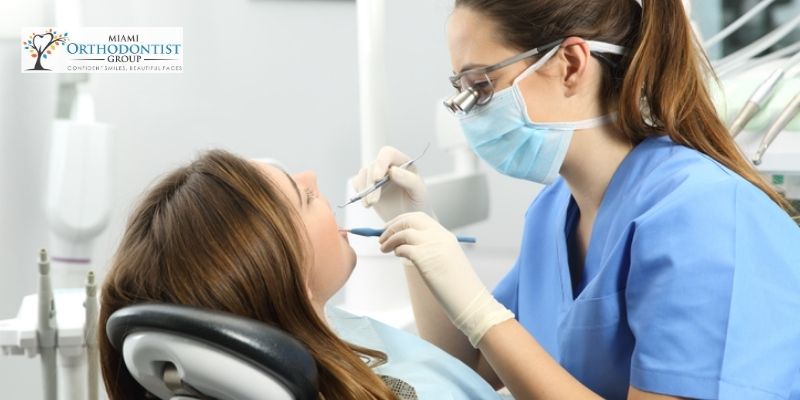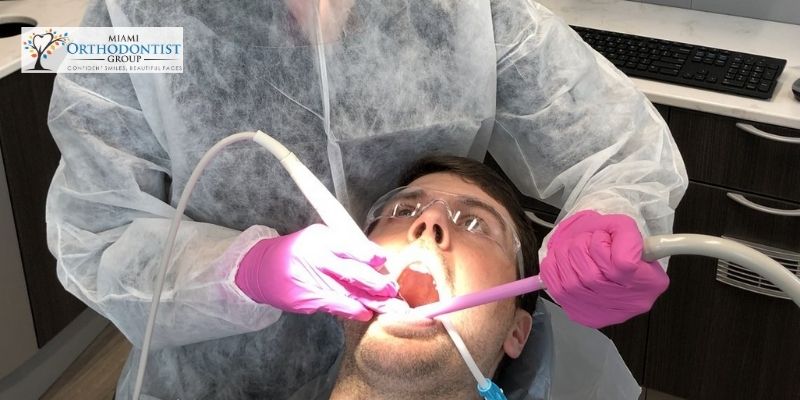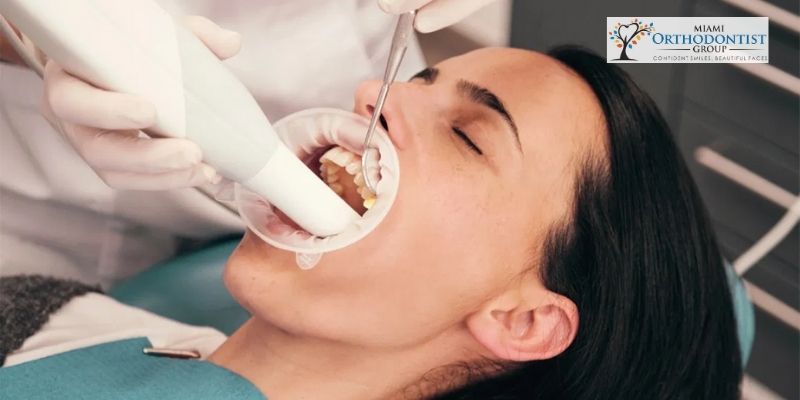You may be thinking that deep cleaning of your teeth requires just a normal home routine, which involves brushing your teeth at home or getting whiteners over the counter to shine your pearly whites all by yourself. Deep Cleaning is more than just doing it on your own. Your dentist must be involved every step of the way without you skipping any dental schedule.
It is only an orthodontist or a dental hygienist who can administer this procedure. Individuals who have not had regular oral cleaning can also go for dental deep cleaning, especially if they have suspected a few uncomfortable issues in their oral health.
Deep Cleaning is meant for periodontal cases, which can also be cured if it is early detected. It can also be prevented if proper oral hygiene is maintained. Also, after undergoing dental deep cleaning, you should not discontinue dental appointments as this will enable total healing.
Importance Of Dental Deep cleaning

If your dentist has suggested dental cleaning, it means that you may be facing some dental problems. These underlying dental issues will require special attention from your dentist, who will ensure you get the best deep cleaning possible. Dental deep cleaning becomes more relevant if you have certain gumline infections.
Gingivitis happens when destructive bacteria get accumulated, and tartars find their way into the spaces between your gum and teeth and distribute toxic substances in the crevice of the gums. When the toxins distributed by bacteria pass its boundary, inflammation occurs. The sensation is often painful and may start mildly in a few hours and become intense later.
For cases of gingivitis, patients may only undergo dental deep cleaning in two dental schedules. Nevertheless, in advanced cases of gum disease, like periodontitis, you may need several dental appointments because some serious cases will require the tooth to be extracted to keep the teeth safe from the progression of bone and gum decay.
By finding it necessary to undergo dental deep cleaning, you would have taken care of root planing and scaling since deep cleaning stops gum diseases from advancing. After the dentist has successfully executed the deep cleaning, the gum slowly begins to heal, and over time, there is total restoration.
In an appropriate medical term, dental deep cleaning is known as root planing and scaling, and it has been an integral part of the dental care protocol. During root planing and scaling, the dentist uses series of dental apparatus to clean the teeth deeply, extract plaque from everywhere it is hidden in the teeth, and smoothens out the root to stop further increment and production of bacteria.
Deep cleaning procedures are not time-consuming. Conventionally, the process may be accomplished in not more than 30-45 minutes, and the outcome will be a fresher and cleaner mouth making up all sides upper right, upper left, lower right, and lower left. Your dentist may advise you to visit frequently until your teeth and gum have completely healed. The number of post-procedural visits also depends on how serious the condition of your mouth is.

You need to maintain good oral care at home if you want your teeth to look good always and stay strong and healthy in your mouth for a very long time. The proper hygienic procedure will require brushing your teeth twice or thrice a day, flossing regularly, going for a dental checkup after every six months, and working according to your dentist’s advice and recommendations. All these are essential if you want to have clean and healthy teeth.
Another important reason why you should upgrade your oral health through dental deep cleaning is that a good length of your teeth, about one-third on average, is concealed beneath the outer boundary of your gum. This is why your dentist will always recommend a dental deep cleaning. Usually, ordinary teeth cleaning involves discarding bacteria and plaque on top of your gum tissue, while dental deep cleaning requires extracting tartars accumulated underneath the outer layer of your gum tissue.
Dental deep cleaning is crucial because your dental health depends on your general health. Not just does deep cleaning prevent gum diseases like periodontitis and gingivitis, it also prevents oral cancer, liver and kidney diseases, stroke, heart diseases, and all general health problems. Dental deep cleaning also helps in decreasing tooth sensitivity due to gum line recession.
Starting an early treatment will increase your chances of getting rid of your dental problem. Ignoring certain dental conditions may lead to requiring surgery, which may be more expensive and too intense since you would have already lost a tooth or more.
By scheduling a session with your dentist, you will find out if you need dental deep cleaning. He or she will check the level of your inflammation using a periodontal device to take accurate measurements around each tooth in your mouth. If any sign of bleeding is detected, getting a dental deep cleaning is compulsory.
It is normal for an individual with teeth inflammation to complete his or her deep cleaning procedure on two successful visits. The procedure is often recommended by the dentist to ease the stress or pain on your gum and teeth. This means, on each visit, the dentist will clean each half of your mouth. While some individuals may need dental deep cleaning at least once every year, different categories of individuals may only need deep cleaning a few timesin their whole lifetime.
Conclusion
Dental deep cleaning is mostly recommended for individuals with signs of gum diseases. You are liable to having gum diseases when space or pocket holding your teeth and gum together begins to widen and deepen thereby causing plagues to get trapped and develop into tartars. Deep cleaning will only require two visits for the procedure to be accomplished.
Regular tooth cleaning at home is very important, but it is even more efficient to carry out deep cleaning, especially if you are already having early symptoms of gum infections. A dental checkup is necessary. Once in a while, visit a dentist and have your teeth examined so that you can maintain the state of your oral and general health.


